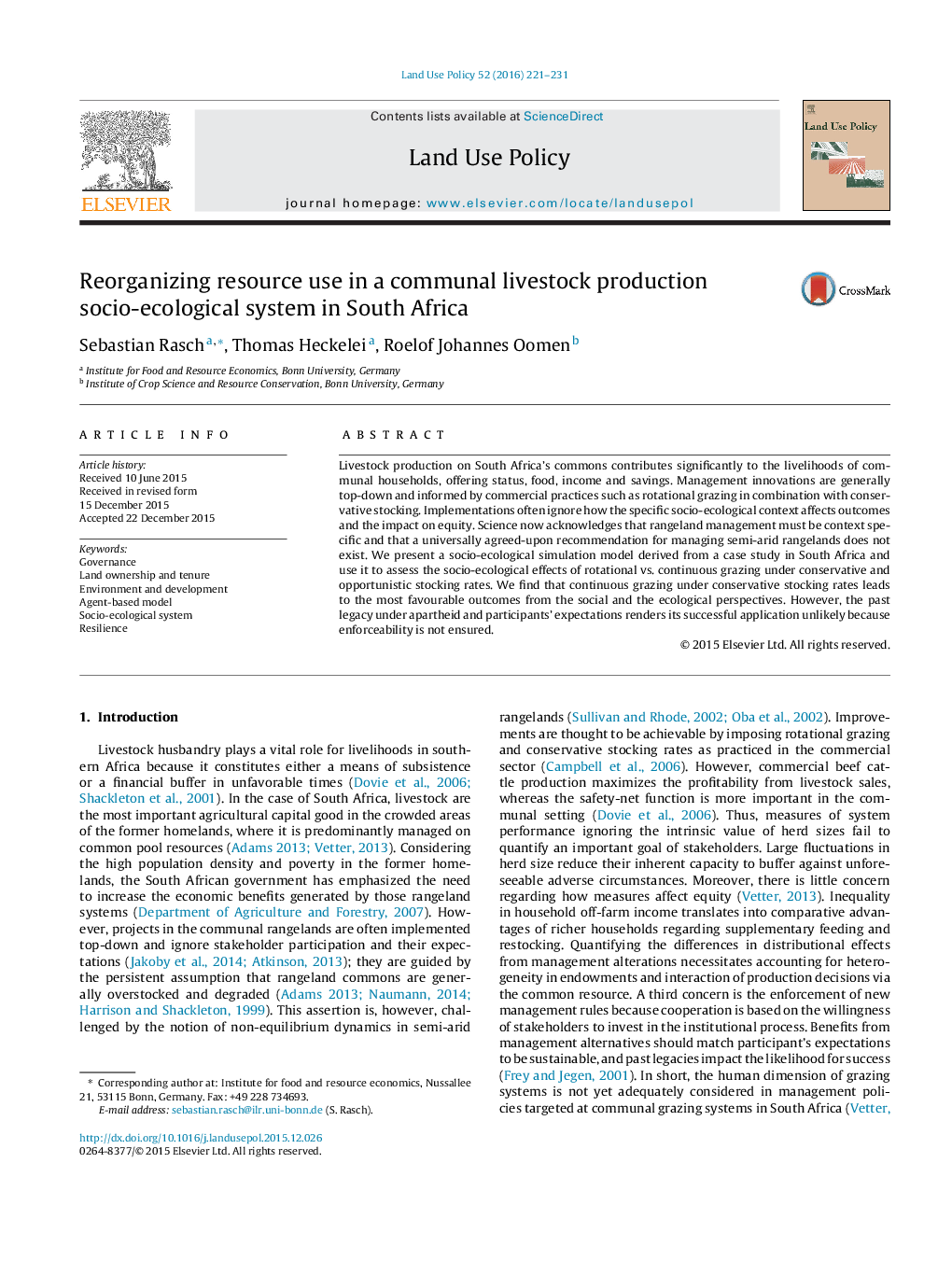| Article ID | Journal | Published Year | Pages | File Type |
|---|---|---|---|---|
| 6547459 | Land Use Policy | 2016 | 11 Pages |
Abstract
Livestock production on South Africa's commons contributes significantly to the livelihoods of communal households, offering status, food, income and savings. Management innovations are generally top-down and informed by commercial practices such as rotational grazing in combination with conservative stocking. Implementations often ignore how the specific socio-ecological context affects outcomes and the impact on equity. Science now acknowledges that rangeland management must be context specific and that a universally agreed-upon recommendation for managing semi-arid rangelands does not exist. We present a socio-ecological simulation model derived from a case study in South Africa and use it to assess the socio-ecological effects of rotational vs. continuous grazing under conservative and opportunistic stocking rates. We find that continuous grazing under conservative stocking rates leads to the most favourable outcomes from the social and the ecological perspectives. However, the past legacy under apartheid and participants' expectations renders its successful application unlikely because enforceability is not ensured.
Related Topics
Life Sciences
Agricultural and Biological Sciences
Forestry
Authors
Sebastian Rasch, Thomas Heckelei, Roelof Johannes Oomen,
